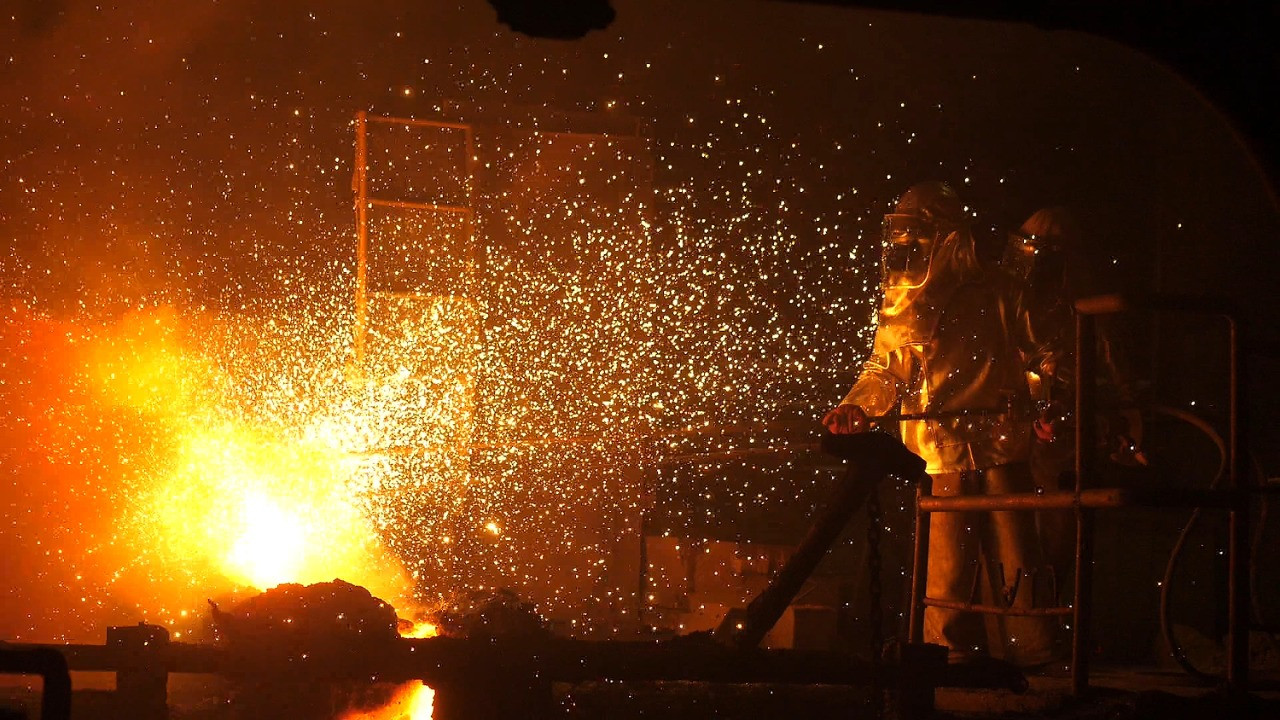Popular Reads
Top Results
Can't find what you're looking for?
View all search resultsPopular Reads
Top Results
Can't find what you're looking for?
View all search resultsGovt maintains export ban on nickel, relaxes rules for other metals until 2023
The new ministerial regulation is the latest in a series of back-and-forth policies issued over the past 11 years related to banning raw metal exports as the country, a major coal and raw metals producer, seeks to industrialize its mineral wealth.
Change text size
Gift Premium Articles
to Anyone
T
he Energy and Mineral Resources Ministry has enforced an export ban on nickel ore, while relaxing it for two other metals for more than a year, through a recently issued regulation that serves as a derivative for the new Coal and Mineral Mining Law.
Ministerial Regulation No. 17/2020 issued on Nov. 11 maintains the nickel ore export ban that started this year but allows miners to continue exporting washed bauxite and copper anode slime until June 2023, on the condition they are either building or already working with a smelter.
The two metal concentrates, washed bauxite and anode slime, are respectively used to make aluminum and certain precious metals such as gold and silver. Indonesia is a big exporter of these metals.
“Only nickel cannot be exported because it is banned by [the preceding] Ministerial Regulation No. 11/2019,” said the ministry’s mineral business development director, Yunus Saefulhak, in a text message to The Jakarta Post on Wednesday.
The new ministerial regulation is the latest in a series of back-and-forth policies issued over the past 11 years related to banning raw metal exports as the country, a major coal and raw metals producer, seeks to industrialize its mineral wealth.
Indonesia, the world’s largest nickel ore producing country, has banned exports of the commodity since January to push miners to develop smelters and refine the metal ore domestically so they can export higher-value products.
Local media outlets reported that the new ministerial regulation extended to the bauxite and anode slime export ban date from January 2022, as stipulated by the preceding ministerial regulation, to June 2023.
However, Yunus explained that the new Coal and Mineral Mining Law, which came out in June this year, had already granted such an extension. The new regulation only operationalized the new law’s mandate.
The law relaxed the export ban for the concentrates as the COVID-19 pandemic had delayed many metal smelter construction projects.
The regulation also came as mining exports reached US$1.55 billion in October, up 16.98 percent year-on-year (yoy) from September, in the sharpest rise compared to the country’s three other major export industries: oil and gas, agriculture and manufacturing, Statistics Indonesia (BPS) data show.
However, overall, from January to October period this year, mining exports still fell 25 percent yoy to $15.62 billion from last year, due to the slump in coal exports amid the impact of the COVID-19 pandemic.
Meanwhile, nickel was declared exempt from a relaxation because global demand for nickel-based electric vehicles (EVs) batteries was expected to rise higher than for aluminum and precious metals in the medium-term, as the world shifts away from fossil fuels.
The government has aimed for the country to produce nickel-rich batteries for EVs instead of just digging up nickel ore. Three state-owned companies, consisting of mining holding company MIND ID, oil and gas company Pertamina and electricity company PLN, are tasked with establishing a holding company to develop an end-to-end supply chain for EV batteries.
Coordinating Economic Minister Airlangga Hartarto often touts a plan of having EVs contribute 20 percent of all new vehicles starting 2025, although the target is not written in any regulation.
“In 2025, demand for nickel ore will be very high so we need to secure our [nickel] reserves for a [domestic] EV industry,” explained Indonesian Mining Association (IMA) executive director Djoko Widajatno.
Furthermore, Indonesia’s nickel reserve lifespan was several years shorter than that of its bauxite and copper ore reserves. Opening export taps would only quickly exhaust the country’s nickel reserves and was thus, also a reason behind the early export ban, he added.
According to the 2020 United States Geological survey, at last year’s production rates, Indonesia’s current nickel reserves will last another 26 years compared to bauxite’s 75 years and copper’s 111 years, excluding miners’ efforts into exploring new reserves.
“A smelter is around 30 years so its metal reserves need to be more than 30 years,” said Djoko.
The ministry expects two new nickel smelters to come online this year. These are PT Weda Bay Nickel’s smelter in Central Halmahera, North Maluku and state-owned PT Aneka Tambang’s smelter in neighboring East Halmahera.
The Central Halmahera smelter, which can produce 300,000 tons of ferronickel annually, has reached 100 percent completion. Meanwhile, the East Halmahera smelter, which can produce 64,655 tons annually, has progressed by 97 percent, as its completion held back by an inability to strike an electricity supply deal with state-owned PLN.
“Nickel is expected to become an alternative to the coal industry that has all this time been a major contributor to the mining sector,” Samuel Sekuritas investment analyst Dessy Lapagu previously told the Post.










